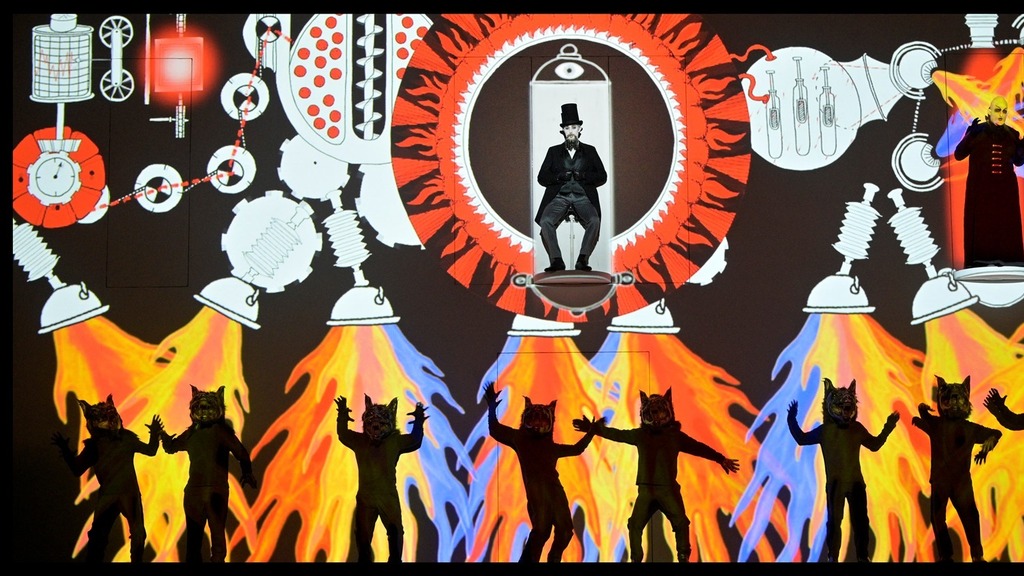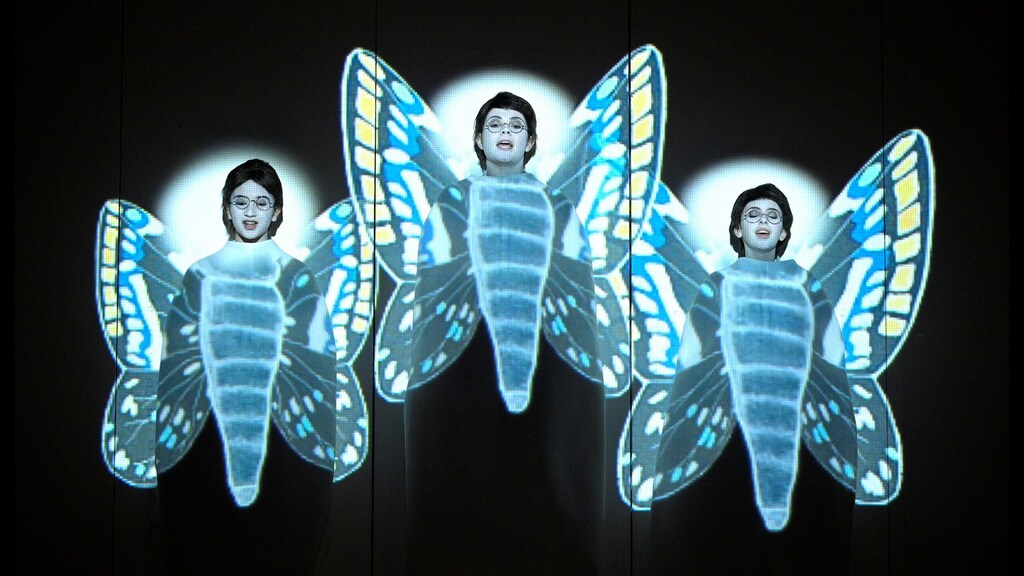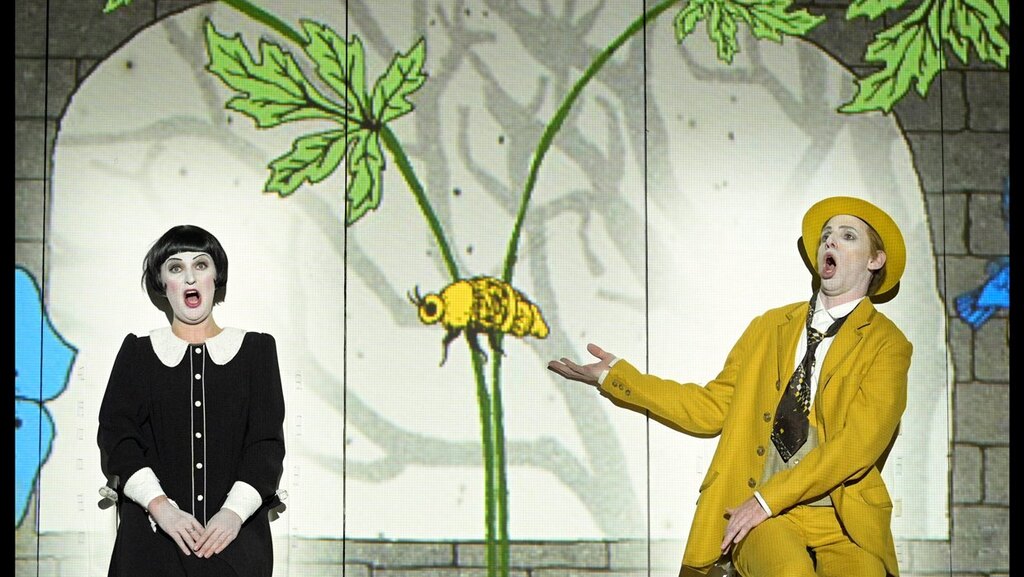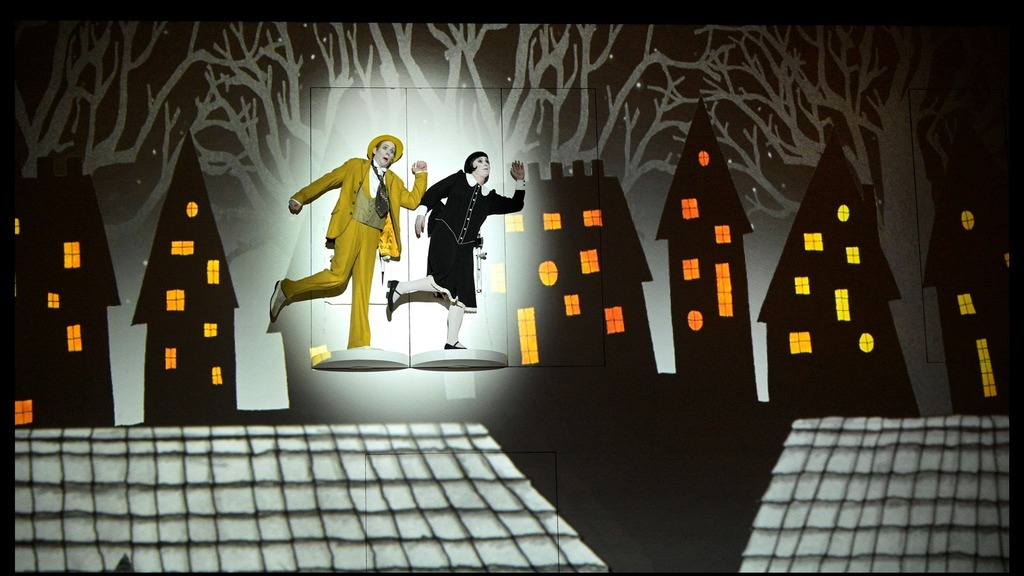Rarely have I been to an operatic production that has stirred such diversity of opinion as the ultra-modern production of Wolfgang Amadeus Mozart’s The Magic Flute being performed this month by the Israeli Opera in Tel Aviv.
Love it or hate it, it is a work of art that at least deserves contemplation, and admiration for the skill -- even if not the content -- of the animators involved.
One parallel that comes to mind -- especially during the instrumental interludes -- is with the groundbreaking Walt Disney film Fantasia, where, for the first time in the history of mainstream popular culture, the art of motion picture animation was married with immortal classical music.
In the current live production, the entire stage is a giant screen on which all scenery and props -- and even thoughts and concepts -- are projected in the form of animated creatures and inventions, with the human performers appearing as cutouts emerging as a third dimension from the white canvas.
This is a production -- a coproduction, actually, of the Israeli Opera with the Komische Oper Berlin -- that was bound to stir controversy. The animation is unceasing, ranging from artistic and colorful to stark and disturbing -- with a large dose of cartoonishly silly thrown into the mix.
The adjective silly could justifiably also be used to describe the costuming. All of the female roles were played by singers who were dressed in US flapper-era garb, while the dress of the male leads reflected American vaudeville fashion of the same time period, If not straight out of a Buster Keaton silent movie; in fact, there was frequent narration between scenes in the form of titles projected on the screen -- with the familiar live piano music accompaniment, played by the guest conductor, Nimrod David Pfeffer.
What that era in history in the new world has to do with this contemporary European production’s avant-garde atmosphere, generated by the imaginative animated figures --- whether human, animal or some hybrid of both, as well as of animal and machine -- is anybody’s guess. Fortunately, Mozart’s music is always triumphant; anyone occasionally disturbed or annoyed by the goings-on on the screen can always close his or her eyes and enjoy the purity of the 18th-century genius’s composition.
To their credit, the cast of performers interact seamlessly with the images on the screen -- a demanding task requiring precision in acting that must be executed flawlessly without adversely affecting their singing.
Along with the German director and animator -- who were the co-originators of the concept of this production, which has been performed in numerous venues worldwide since 2005 -- there were other international talents making their debuts with the Israeli Opera: in lead male roles, Papageno is sung by American baritone Theo Hoffman (alternating with Oded Reich, graduate of the Israeli Opera Meitar Studio), while Sarastro is sung -- in an appropriately grave and stentorian voice -- by Ukrainian bass Taras Berezhansky.
Female leads making their Tel Aviv debuts, meanwhile, include two sopranos singing the Queen of the Night: Italian Eleonora Belloci and German Beate Ritter. The latter gave a bravura coloratura performance in the famous rage aria Der Hölle Rache; unfortunately, she was in Israel for the first two performances only, now being replaced by Belloci alternating with Israeli Nofar Yacobi, a familiar voice to local audiences.
Similarly known are Russian soprano Alla Vailevitsky and Israeli soprano Yael Levita, who are alternating in the role of Pamina. Her romantic interest, the male lead Tamino, is being sung by two foreigners who are no strangers to the Israeli stage: British tenor Alasdair Kent alternating with American baritone Aaron Blake.
Lest the non-vocal music be forgotten, two instruments in particular play key parts in the opera: the flute and the glockenspiel. Kudos go to the flautists and percussionists of the opera orchestra, The Israel Symphony Orchestra Rishon LeZion, under the baton of visiting conductor (from New York’s Metropolitan Opera), Israeli Nimrod David Pfeffer.
The current Israeli Opera production of The Magic Flute is scheduled to run through November 17.
First published: 16:42, 11.16.21





